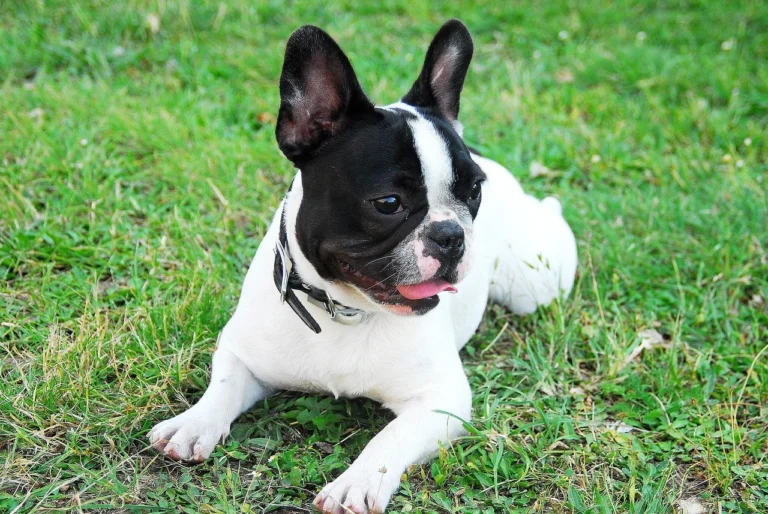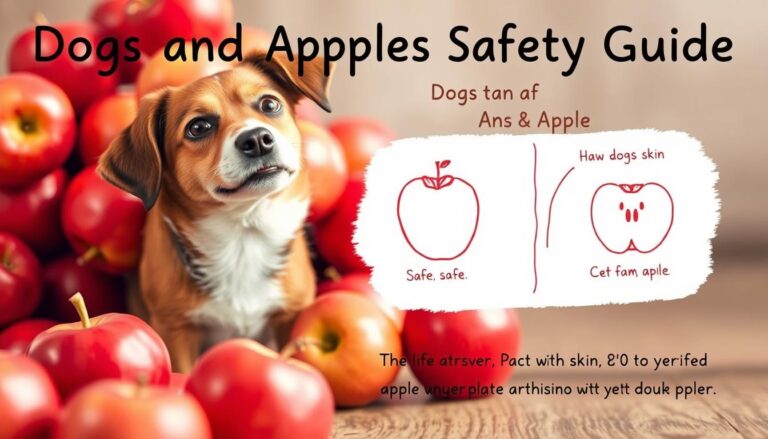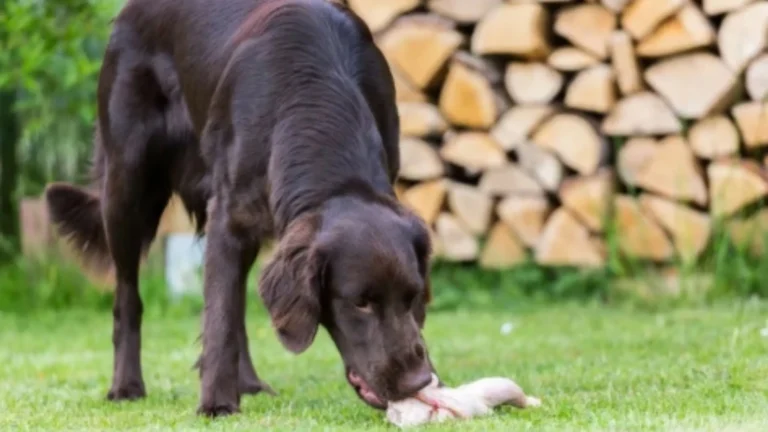Can dogs have marshmallows? Learn the facts, risks, and safe alternatives for your pup.
Imagine this: You’re at a campfire, roasting marshmallows, and your dog looks up with puppy eyes. The urge to give them a treat is strong. But, think twice before offering marshmallows. Knowing what treats are safe for dogs is crucial for their health.
As a pet owner, you might ask: can dogs have marshmallows? The answer is not simple. Marshmallows might seem safe, but they can be harmful to dogs. It’s important to choose treats that meet your dog’s nutritional needs and keep them healthy.
This guide will cover everything about marshmallows and dogs. We’ll look at the risks and why these treats can be bad for your dog. Your dog’s safety is key, and choosing the right treats can help avoid health problems.
Table of Contents
Understanding Marshmallow Ingredients and Their Effects on Dogs
When we talk about pet nutrition, it’s key to know what’s in human treats like marshmallows. These treats can affect your dog’s health in different ways. Plain marshmallows have ingredients that can impact your dog’s well-being.
Basic Marshmallow Components
Marshmallows have several main ingredients that are a concern for dog owners:
- Sugar: This is what makes marshmallows sweet
- Corn syrup
- Gelatin
- Water
- Air
Sugar and Corn Syrup Digestion in Dogs
Dogs digest sugar and corn syrup differently than humans. Their bodies aren’t made to handle lots of refined sugars. Too much sugar can cause health problems:
- Weight gain
- Dental issues
- Potential diabetes risk
- Digestive system strain
Gelatin’s Role in Marshmallow Ingredients
Gelatin is a protein from animal collagen that holds marshmallows together. It’s not harmful to dogs but doesn’t offer much nutritional value. Some dogs might have mild digestive issues from gelatin.
Veterinary experts say to avoid sugar-based treats for dogs. They recommend choosing nutritionally balanced options instead.
The Dangers of Sugar-Free Marshmallows for Dogs
Pet health experts warn about a critical danger in sugar-free marshmallows: xylitol poisoning. This artificial sweetener is very harmful to your dog’s health. It makes keeping your pets safe from marshmallows very important.
Xylitol is very toxic to dogs, even in small amounts. If your dog eats it, it can cause a quick and dangerous reaction. This reaction can lead to:
- Dramatic blood sugar drops
- Potential liver failure
- Neurological complications
Dogs and humans process xylitol differently. What seems safe can quickly become very dangerous. A single piece of xylitol-containing marshmallow could be enough to cause serious harm.
“Prevention is always better than treatment when it comes to xylitol poisoning in dogs.” – Veterinary Toxicology Association
Symptoms of xylitol poisoning can show up fast, in 10-60 minutes. Look out for signs like:
- Vomiting
- Weakness
- Seizures
- Loss of coordination
If you think your dog ate sugar-free marshmallows with xylitol, call your vet right away. Fast action can help prevent serious health problems.
Can dogs have marshmallows: The Definitive Answer
Pet health experts say marshmallow safety is key for dog owners. While marshmallows aren’t toxic, they’re still risky for your pet’s health.
Regular Marshmallows and Canine Nutrition
Technically, dogs can have marshmallows, but with big warnings. Marshmallows have:
- High sugar content
- Empty calories
- No nutritional value
- Potential choking hazard
Portion Considerations and Potential Risks
Even a little marshmallow can harm your dog. Dogs handle sugar differently than people. This can cause:
- Rapid weight gain
- Dental problems
- Potential insulin resistance
- Digestive disruptions
Emergency Situations: When to Contact Your Veterinarian
If your dog eats marshmallows, watch for these signs. They need vet help fast:
- Vomiting
- Diarrhea
- Unusual lethargy
- Signs of stomach distress
Always choose treats made for dogs to keep them healthy.
Health Risks Associated with Dogs Eating Marshmallows
Marshmallows might seem harmless, but they can harm your dog’s health. These treats are full of sugar, which can upset your dog’s diet. This can lead to several health issues that pet owners need to know about.
The main risks of giving marshmallows to dogs include:
- Obesity and Weight Gain: High sugar content contributes to rapid weight gain
- Dental Disease: Sugar promotes tooth decay and gum problems
- Digestive Complications: Potential gastrointestinal upset and discomfort
- Choking Hazard: Marshmallows can block airways, especially for smaller dogs
Dogs can’t handle sugar like humans do. Their diet isn’t made for refined sugar. This can cause serious problems, like insulin resistance and diabetes.
Vets advise against giving marshmallows to dogs. The risks are too high, even if your pet might enjoy them.
“Prevention is always better than cure when it comes to your dog’s nutritional health.” – Veterinary Nutrition Experts
If your dog eats marshmallows, watch them closely. Look for any signs of trouble or odd behavior. If you see something worrying, call your vet right away.
Signs of Marshmallow-Related Complications in Dogs
Pet health is very important when it comes to unexpected food interactions. Marshmallow safety means dog owners need to watch for signs of serious problems from these treats.
Immediate Symptoms to Watch For
Your dog might show warning signs after eating marshmallows. Look out for these important signs of health issues:
- Sudden vomiting
- Uncontrolled diarrhea
- Unusual lethargy
- Excessive thirst
- Abdominal discomfort
Long-Term Health Effects
Dog-friendly foods should not harm your pet’s long-term health. Eating marshmallows often can cause big health problems:
- Weight gain from high sugar
- Potential dental decay
- Increased risk of diabetes
- Potential digestive system disruption
When to Seek Veterinary Care
Always put your dog’s health first by knowing serious warning signs. Call your vet right away if you see:
- Persistent vomiting lasting more than 24 hours
- Signs of extreme weakness or collapse
- Seizures or uncontrolled tremors
- Significant changes in drinking or eating patterns
Quick action can stop serious health problems for your furry friend.
Understanding Xylitol Poisoning in Dogs
Xylitol is a big risk for pets, especially with marshmallows. It can cause quick and deadly problems in dogs. So, it’s very important for pet owners to know about these dangers.
When dogs eat things with xylitol, it can be very bad. Unlike people, dogs have a huge insulin reaction. This can lead to:
- Sudden blood sugar drop
- Potential liver failure
- Neurological complications
The signs of xylitol poisoning can show up within 30 minutes of eating it. Your dog might act weak, tired, or throw up. They could also have trouble moving, have seizures, or act very strange.
Sugar-free marshmallows are especially risky because they have a lot of xylitol. Even a little bit can be very dangerous for your dog. If you think your dog ate something with xylitol, call your vet right away.
To keep your dog safe, always check food labels. Make sure xylitol products are out of your pet’s reach.
Safe Treat Alternatives for Your Dog’s Sweet Tooth
Finding the right treats for your dog can be tough. You don’t want to give them marshmallows because they’re not good for them. Luckily, there are many tasty and healthy dog treats to choose from.
Your dog deserves treats that taste good and are good for them. Look for marshmallow alternatives that are safe and fun for your dog.
Natural Treat Options
Dogs can enjoy many natural treats that are sweet and healthy:
- Fresh fruits like blueberries and watermelon (seedless)
- Crunchy vegetables such as carrots and green beans
- Small pieces of cooked sweet potato
- Apple slices (without seeds)
Commercial Dog-Specific Treats
Pet stores have special dog treats that are good for your pet. Look for treats that are:
- Low in sugar
- Made with natural ingredients
- Specifically formulated for dogs
- Designed to support dental health
Homemade Treat Recipes
Making your own dog treats is fun and healthy. Try recipes with ingredients like:
- Peanut butter (xylitol-free) and pumpkin bites
- Frozen yogurt treats
- Banana and oat cookies
- Chicken or beef jerky strips
Always introduce new treats slowly and in small amounts. Your vet can help choose the best treats for your dog’s needs.
Preventing Accidental Marshmallow Ingestion
To keep your dog safe from marshmallows, you need a plan. It’s important to make sure your home is a safe place for pets. This means keeping them away from foods that are not good for them.
Here are some key steps to keep marshmallows out of your dog’s reach:
- Store marshmallows in high, sealed cabinets inaccessible to dogs
- Create clear guidelines for family members about dog-friendly foods
- Establish kitchen boundaries for pets during food preparation
- Use childproof containers for sweet treats
When you have guests over, it’s important to talk about keeping your dog safe. Tell them not to give your dog marshmallows. A moment of distraction could lead to unintended consumption.
Here are some more steps to keep your dog safe:
- Develop a household “no human food” rule for dogs
- Train family members to recognize dangerous treats
- Keep emergency veterinary contact information readily available
- Regularly educate children about pet food safety
Preventing problems is always better than fixing them. Always watch out for your dog to keep them safe from marshmallows.
Nutritional Guidelines for Healthy Dog Treats
Pet nutrition is vital for your dog’s health and happiness. Choosing the right treats is important. It helps keep your dog’s diet balanced and nutritious.
Experts say to follow certain rules for treats:
- Limit treats to 10% of daily caloric intake
- Choose nutrient-dense options with added health benefits
- Consider your dog’s age, weight, and activity level
Not all dog treats are the same. Quality is more important than how many you give. Look for treats that are:
- Protein-rich ingredients
- Natural, whole food components
- Minimal processed additives
- Specific nutritional advantages
Veterinary nutritionists advise mixing up different treats. Homemade or specially formulated dog treats are great. They let you control what goes into them.
“Treats should enhance, not replace, a balanced canine diet.” – Veterinary Nutrition Association
Every dog is different. Talking to your vet can help you find the best treats for your dog. They can guide you based on your dog’s health needs.
Special Considerations for Different Dog Sizes and Breeds
Pet nutrition isn’t a one-size-fits-all approach. Your dog’s size and breed are key in choosing the right treats and portion sizes. Knowing these differences helps you make better choices for your dog.
Dogs have unique nutritional needs based on their physical traits. It’s important to think carefully about new treats or snacks.
Small Dog Considerations
Smaller dogs face unique challenges with treats like marshmallows:
- Higher risk of choking due to smaller throat passages
- More sensitive to blood sugar fluctuations
- Lower caloric requirements
- Increased susceptibility to digestive issues
Veterinarians recommend extra caution with small breed dog-friendly foods. A single marshmallow could be too much for a tiny dog.
Large Dog Guidelines
Larger dogs have different needs:
- More robust digestive systems
- Higher caloric tolerance
- Lower relative risk of choking
- Better ability to process occasional treats
“Always consult your veterinarian about specific dietary recommendations for your dog’s breed and size.” – Canine Nutrition Expert
For any dog, moderation is key. Treats should never replace balanced, complete meals made for your dog’s breed.
Managing Your Dog’s Diet During Holidays and Special Events
Holidays and special events can be tough for pet nutrition. Your dog’s diet needs extra care when tempting foods are around. It’s important to protect your dog from harmful treats by planning ahead.
Getting ready for gatherings means making a safe space for your furry friend. Here are some key steps to manage your dog’s diet during celebrations:
- Create a designated safe zone for your dog during parties
- Prepare dog treats that match the festive theme
- Educate guests about appropriate dog treats
- Keep harmful foods out of your dog’s reach
Talking to others is key to keeping your dog safe. Tell family and friends about your dog’s dietary limits before the event. Give them dog treats that fit the holiday theme, so your pet feels included.
Planning ahead can stop food accidents. Store dangerous foods high up or in closed containers. Make a quick guide for guests on foods that are bad for dogs, like marshmallows and chocolate.
- Prepare homemade dog treats in advance
- Keep a watchful eye during gatherings
- Have your veterinarian’s contact information readily available
Pet nutrition is more than just feeding. It’s about making a safe, fun space for your dog to stay healthy and happy during special times.
Conclusion
When thinking about whether dogs can have marshmallows, it’s clear: these treats are not good for them. Your pet’s health should always come first. There are much better food choices for your dog.
Marshmallows aren’t toxic right away, but they don’t offer any good nutrients. They can even cause serious health problems. Your dog needs food that helps them stay healthy, not just empty calories.
It’s best to talk to your vet about what treats are safe for your dog. They can help you find healthy food options that make your dog happy and healthy. Remember, good nutrition is key to your dog’s long-term health and happiness.
Your dog depends on you to make good food choices. By knowing what’s best for them, you can give them the best care and nutrition all their life.







